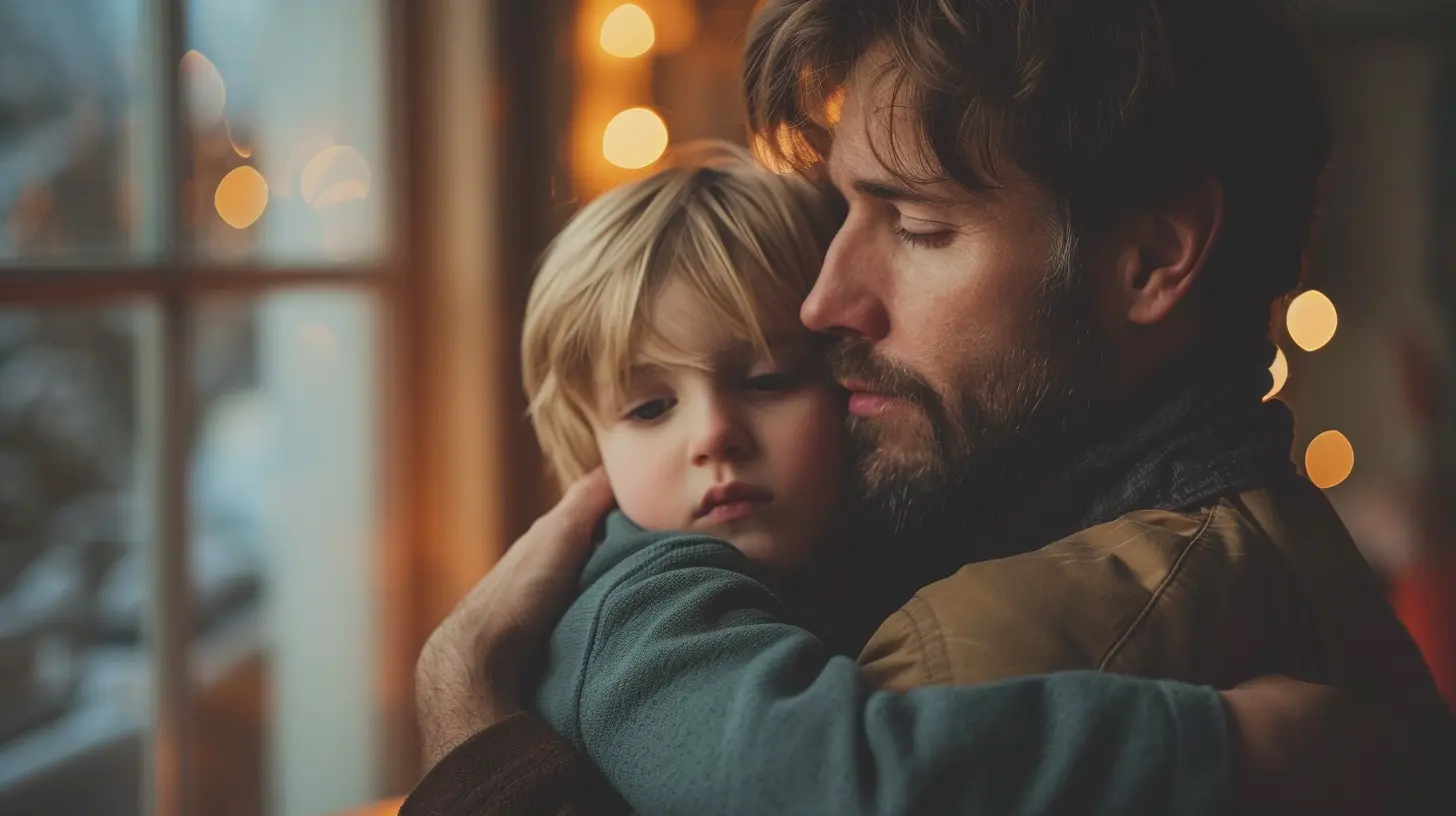Navigating Trauma as a Parent: Protecting Your Children
27 April 2025
Parenting is already a challenging journey, but when you're carrying the weight of your own trauma, it can feel even more overwhelming. You want to be the best parent possible, but past wounds can sometimes surface in ways you don’t expect. More importantly, you worry about how your trauma might impact your children.
The good news? Healing is possible, and you can protect your kids while working through your own struggles. In this guide, we'll break down how to navigate trauma as a parent, build resilience, and create a safe, loving environment for your children.

Understanding Trauma and Its Impact on Parenting
Before you can effectively manage trauma while parenting, it's essential to understand what trauma is and how it influences your approach to raising children.What Is Trauma?
Trauma is a deeply distressing experience that overwhelms your ability to cope. It can stem from childhood abuse, neglect, domestic violence, loss, or other painful experiences. Even if the event is in the past, its effects can linger.Some common symptoms of unresolved trauma include:
- Emotional outbursts or mood swings
- Anxiety, depression, or chronic stress
- Difficulty trusting others
- Hypervigilance (constantly feeling on edge)
- Avoidance of certain emotions or memories
- Struggles with forming healthy relationships
How Trauma Affects Parenting
When you’ve experienced trauma, it doesn’t just disappear when you become a parent. It can shape the way you interact with your children, sometimes leading to unintended consequences.For example, if you grew up in a home where emotions were dismissed, you might struggle to validate your child’s feelings. If you experienced neglect, you may overcompensate by being overly protective. Trauma can also make it harder to regulate your emotions, causing you to react harshly or shut down altogether.
But here's the key: Awareness is the first step toward breaking the cycle.

Breaking the Cycle of Trauma
Breaking free from generational trauma isn’t easy, but it is entirely possible. By taking intentional steps, you can ensure that your children grow up in a healthier environment, even if you didn’t have that yourself.1. Acknowledge Your Trauma
Many parents push their trauma aside, thinking they need to focus solely on their children. But the truth is, ignoring your pain doesn't make it disappear. In fact, it often comes back in unhealthy ways.Start by acknowledging your past experiences, no matter how painful. Journaling, talking to a therapist, or confiding in a trusted friend can help you begin this process.
2. Prioritize Healing
Healing takes time, but seeking professional help can make a world of difference. Therapy, support groups, or even self-help books can provide valuable tools for coping.Consider therapies like:
- Cognitive Behavioral Therapy (CBT) – Helps reframe negative thoughts and behaviors.
- Eye Movement Desensitization and Reprocessing (EMDR) – Useful for processing traumatic memories.
- Somatic Therapy – Focuses on how trauma is stored in the body.
Healing doesn’t mean forgetting—it means learning to integrate your past into a healthier present.
3. Practice Self-Regulation
Children often mirror their parents’ emotional states. If you’re constantly overwhelmed or reactive, they may develop similar stress responses. Learning to regulate your emotions will help both you and your kids.Some self-regulation techniques include:
- Deep breathing – Slows the nervous system, reducing stress.
- Grounding exercises – Engages the senses to bring you back to the present moment.
- Mindfulness – Helps you become aware of your thoughts and reactions without judgment.
The more control you have over your emotions, the more stability you can provide for your children.
4. Create a Safe Environment
A home filled with love and security is essential for children, especially when trauma is involved. Here are some ways to ensure they feel safe:- Consistency – Predictability helps children feel secure. Establish routines they can depend on.
- Emotional validation – Encourage them to express their feelings and let them know their emotions are valid.
- Positive discipline – Focus on guidance and teaching rather than harsh punishment.
When kids feel safe and heard, they’re more likely to develop resilience, even if you’re still working through your trauma.

Protecting Your Children from Secondary Trauma
Children are incredibly perceptive, and even if you try to hide it, they can pick up on your pain. That’s why protecting them from secondary trauma—when a child experiences distress because of a parent’s unresolved trauma—is crucial.1. Recognize the Signs
Some signs that your child may be affected by your trauma include:- Increased anxiety or fearfulness
- Becoming overly independent or overly clingy
- Trouble sleeping or frequent nightmares
- Behavioral outbursts or withdrawal
If you notice these signs, take a step back and assess how your struggles might be impacting them.
2. Communicate Openly and Age-Appropriately
You don’t need to shield your children from every challenge you face, but it's essential to communicate in a way that they can understand.For example, instead of saying, “Mommy is really depressed today,” you might say, “I’m feeling a little sad, but it’s okay, and I’m working on it.”
By modeling healthy emotional expression, you teach your child that emotions are natural and manageable.
3. Encourage Healthy Coping Skills
Just as you work on regulating your emotions, you can help your child develop their own healthy coping mechanisms. Some simple practices include:- Creative activities – Drawing, writing, or music can help them process emotions.
- Physical activity – Exercise releases tension and boosts mood.
- Mindfulness techniques – Breathing exercises or guided imagery can calm anxiety.
The goal isn’t to raise a child who’s never affected by hardship—it’s to equip them with the tools to handle life’s challenges.

Giving Yourself Grace as a Parent
Being a parent with trauma doesn’t mean you’re failing your child. In fact, the fact that you’re reading this and seeking answers shows just how much you care.1. Accept That Perfection Isn’t the Goal
No parent gets it right 100% of the time. What matters is that you’re trying. Mistakes happen, and that’s okay. When you mess up, acknowledge it, apologize if necessary, and keep moving forward.2. Lean on Support Systems
You don’t have to do this alone. Whether it’s a partner, a friend, or a therapist, having a solid support system can make all the difference. Surround yourself with people who encourage and uplift you.3. Celebrate Your Progress
Healing is a journey, and every step forward is worth celebrating. Acknowledge the small wins—whether it's staying calm during a stressful moment or simply making time for self-care.Final Thoughts
Parenting with trauma is tough, but you are not alone. By actively working on your healing, practicing self-regulation, and fostering open communication, you can create a healthier emotional environment for both yourself and your children.The past may have shaped you, but it doesn’t have to define your parenting. With patience, self-compassion, and the right tools, you can break the cycle and raise resilient, emotionally healthy children.
all images in this post were generated using AI tools
Category:
TraumaAuthor:

Janet Conrad
Discussion
rate this article
3 comments
Mistral Wilkins
As we navigate our own traumas, the shadows can linger, unseen. What if the way we protect our children inadvertently reveals deeper scars? Join us in unraveling the delicate balance of shielding innocence while confronting our own darkness.
May 5, 2025 at 2:48 PM

Janet Conrad
Thank you for your thoughtful comment! It's essential to recognize that our experiences shape our parenting. Striking that balance requires self-awareness and compassion, both for ourselves and our children.
Destiny McVicker
Trauma doesn’t define us; it’s how we rise that shapes our children. Embrace your healing journey unapologetically—show them strength. Protecting them means prioritizing your mental health. Strong parents raise resilient kids.
May 3, 2025 at 2:58 AM

Janet Conrad
Absolutely! Embracing our healing not only empowers us but also sets a powerful example for our children. Prioritizing mental health is essential for fostering resilience in the next generation. Thank you for sharing this important perspective!
Odessa Scott
This article offers essential insights for parents coping with trauma. It emphasizes the importance of self-awareness and emotional regulation in order to create a safe environment for children. Practical strategies discussed can help foster resilience and healthy communication within the family.
May 1, 2025 at 3:04 AM

Janet Conrad
Thank you for your thoughtful comment! I'm glad to hear the article resonated with you and that you found the insights and strategies valuable for fostering a supportive family environment.



